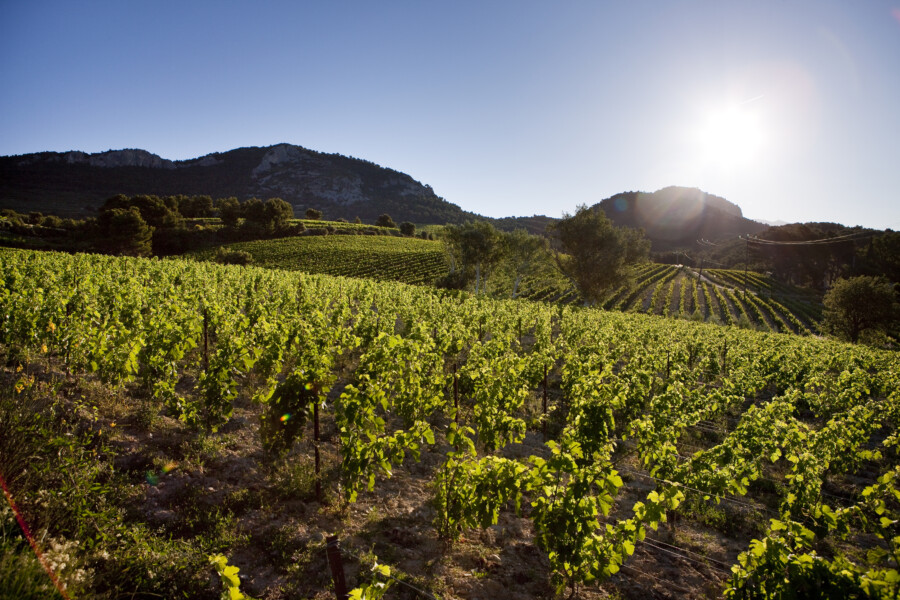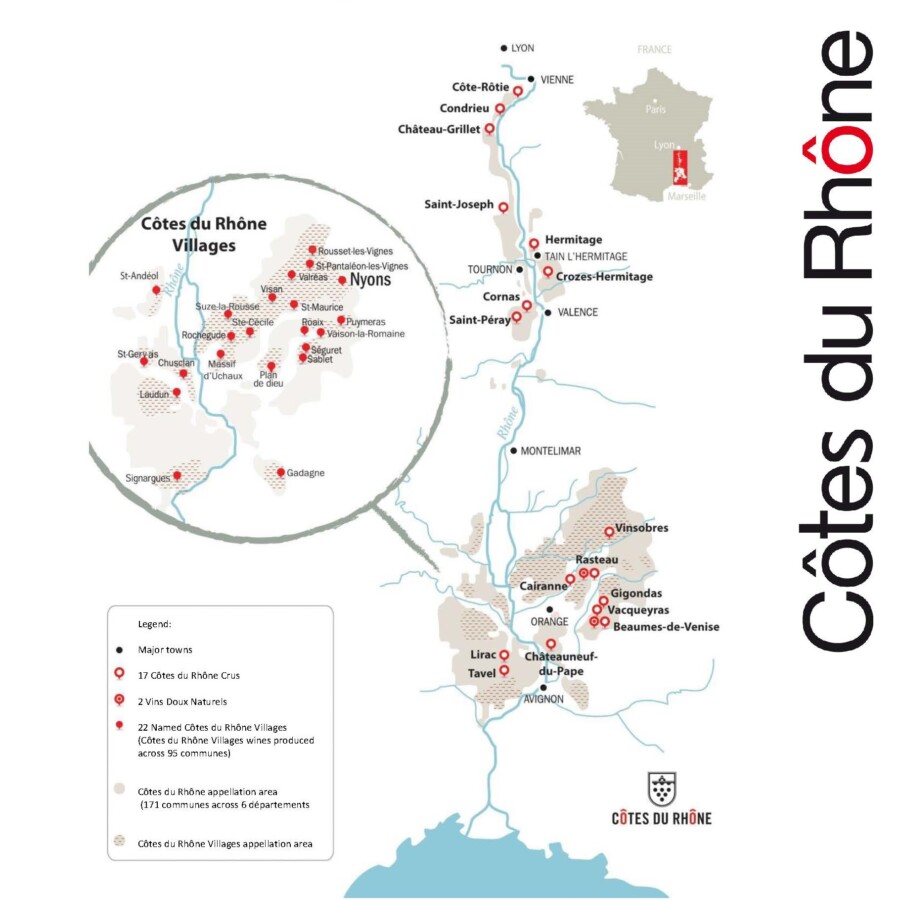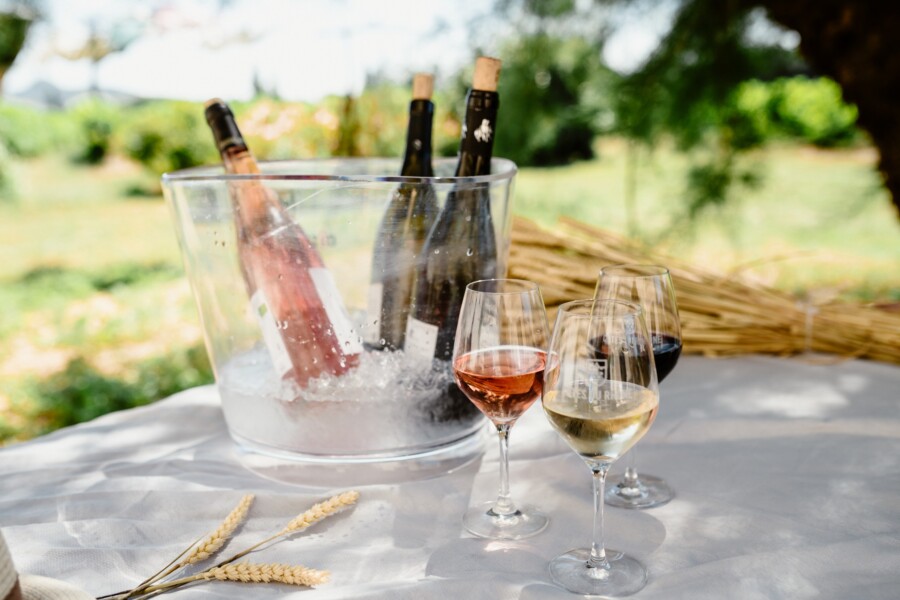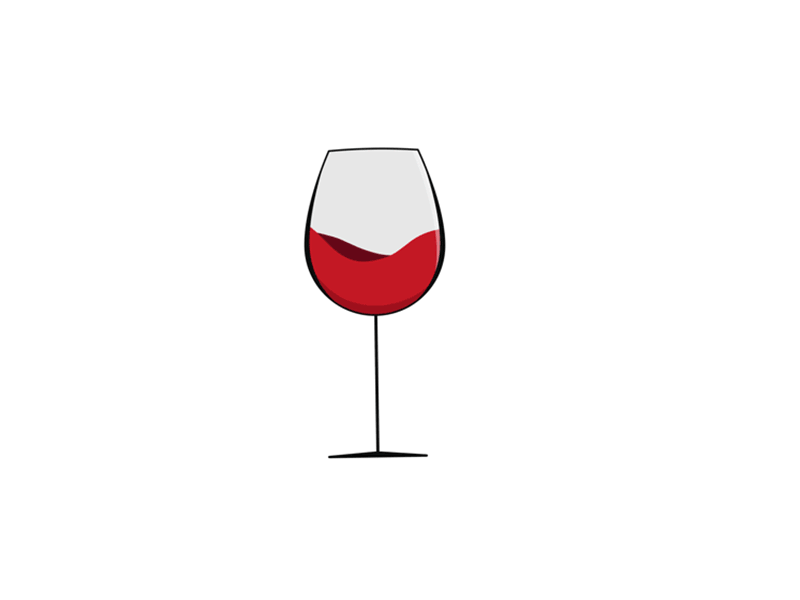The AOC Côtes du Rhône are naturally inclined to promote respectfully the biodiversity in vineyards thanks to several natural resources: the vigorous grape varieties, a land accustomed to high heat with hot summers and dry winters, which makes it possible to regulate the water supply, and the Mistral, a dry wind found in Mediterranean, that removes moisture and reduces the risk of fungal attack, making the vineyard stronger and more resistant to disease while limiting the need for intervention.
However, the effects of climate change has been reflected in the timing of harvest in the recent years: over the last 26 years, annual precipitation has decreased in the south, the harvest dates have advanced by 15 days in the AOC Côtes du Rhône. Facing the challenges of global warming, AOC Côtes du Rhône has demonstrated stronger determination to pursue sustainable development in winegrowing business.
A commitment to respect the environment
To ensure the sustainability of the vineyard, winemakers and professionals of the wine industry have made an environmental commitment through a multitude of certifications with the aim of ensuring traceability from vine to glass, saving natural resources, producing healthy wines that respect the balance of nature and to protect biodiversity.
A strategic environmental plan for the AOC Côtes du Rhône and AOC Côtes du Rhône Villages was adopted in 2019 by Côtes du Rhône wine producers union (“the Syndicat Général des Vignerons Réunis des Côtes du Rhône”) to support the preservation and enhancement of the vineyards on a daily basis, with several highlights: Agri-environmental measures (AEM) have been selected to preserve the quality of water and soil by limiting chemical weeding.
It is now forbidden to chemically weed more than 50% of the surface of the planted plot. Secondly the winegrowers are encouraged to preserve bees and promote the repopulation of bats and the presence of birds in the vines.

France
Region Provence-Alpes-Côte d’Azur departement Vaucluse
Canton de Beaumes-de-Venise
Code postal 84190 Communauté d’agglomération Ventoux-Comtat Venaissin
Population 2 185 hab. (2006)
Certifications to honor the sustainability
Winegrowers from AOC Côtes du Rhône are also encouraged to be environmentally conscious and apply for one of the certifications below, that are well-known by wine enthusiasts internationally:
– Sustainable HVE and Terra Vitis certifications focus on promoting sustainable viticulture, favoring natural regulatory mechanisms, ensuring the production of healthy grapes and increased biological diversity in the plots and their surroundings.
– Organic AB certification covers products and makes it possible to verify products from organic farming. It is necessary to count three years before being able to be certified, it is a long-term commitment. In the AOC Côtes du Rhône, organic wine represents 11% of the total harvest (11% for the Côtes du Rhône Villages and 16% for the Côtes du Rhône Villages with geographical names).
– Biodynamic Demeter and Biodyvin certifications considers that particular periods are chosen for vineyard management, winemaking, and maturation. This viticulture considers the lunar calendar and its cycles to practice the cultivation of the land. The goal is to boost soils and crops thanks to the influence of the stars and following the rhythms of nature, so that it gives the best of itself.
Côtes du Rhône: a Generous AOC by Nature
As the backbone of the Rhône Valley Vineyards, AOC Côtes du Rhône is the first AOC of the region. Recognized for the impressive red wines which represent 87% of production, the AOC also produces excellent white and rosé wines.
Red: in the north, Syrah is the queen. In the south, wine blends rule, with Grenache, Syrah and Mourvèdre as the most popular grape varieties. The red wines are fruity, generous, and perfect to be paired with cold meat, barbecue or soft cheese.
Rosé wines account for 8% of the Côtes du Rhône production. The wines are usually blends, with Grenache, Cinsault and other black-skinned grapes. They can be enjoyed as an aperitive or with a salad.
White wines account for 5% of the Côtes du Rhône production. Viognier gives great varietal wines in the north. In the south, the wines are blends, using mostly Marsanne, Roussanne, Viognier and Bourboulenc. They are rich, full-bodied, and round on the palate, with pear and peach aromas and can be enjoyed with fish or cheese.





0 Comments